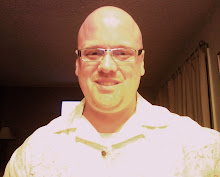 The Hero with a Thousand Faces and The Hero of a Thousand Faces:
The Hero with a Thousand Faces and The Hero of a Thousand Faces:Joseph Campbell was an incredibly interesting man. His book stirred my curiosity about religion and mythology as a teenager and was only amplified by George Lucas's frequent mention of his influence in the creation of the Star Wars saga.
- A hero is someone who has given his or her life to something bigger than oneself. (Joseph Campbell)
- Every religion is true one way or another. It is true when understood metaphorically. But when it gets stuck in its own metaphors, interpreting them as facts, then you are in trouble. (Joseph Campbell)
Joseph Campbell explained the religious reality experienced by others as myths. A myth is a clever way of telling story that penetrates the hearts of men and echoes throughout time. It is a way of explaining reality, but to him, myths are not true or factual, just convenient. Joseph Campbell is a man with a hero in mind, he bears the face of a thousand people but is not truly and tangible person, a mere abstraction. In the preface of Campbell's book it states this, "There are of course differences between the numerous mythologies and religions of mankind, but this is a book about similarities; and once they are understood the differences will be found to be much less great than is popularly (and politically) supposed. My hope is that a comparative elucidation may contribute to the perhaps not-quite disparate causes of those forces that are working in the present world for unification, not in the name of some ecclesiastical or political empire, but in the sense of human mutual understanding" (Third edition, page VIII). A myth is only a myth until it is believed to be true, then it becomes an idea with a proposition. C.S. Lewis once stated that Christianity is the "One True Myth". A myth who's message penetrates the heart and touches the mind. Joseph Campbell developed the theory of the monomyth. "The monomyth (often referred to as "the hero's journey") is a description of a basic pattern found in many narratives from around the world" (wiki).

A monomyth is basically a chart pointing out the similarities of various religions and ancient myths. There are many views on mythology but I also believe in the one true myth just as C.S. Lewis did. There is a reality to life that is not explained by mythology, a reality that when experienced leaves a man devoid of conscience or purpose. I have seen and believed many strange ideas over time, none more so than Star Wars by George Lucas. The mythology in this movie series was so rich and invigorating to experience that I almost believed it as a kid. The mythology of Campbell is often associated with Jungian psycho-structural babble. Campbell was also known to be a student of James Joyce who wrote " A Skeleton's Key to Finnegan's Wake". I think Campbell does a supreme job of awakening the philosophical aspirations of the mind, but also offers no real answer to any of the existential questions of life. His proposition is that we each make up our own meaning. Here is an overview of Campbell's position. The hero is introduced in his ordinary world, where he receives the call to adventure. He is reluctant at first but is encouraged by the wise old man or woman to cross the first threshold, where he encounters tests and helpers. He reaches the innermost cave, where he endures the supreme ordeal. He seizes the sword or the treasure and is pursued on the road back to his world. He is resurrected and transformed by his experience. He returns to his ordinary world with a treasure, boon, or elixir to benefit his world.
I can understand the appeal of Campbell's writing, but it can not really answer any great question to the point and pain of existence.
Some thoughts,
Chaplain Jeremy



2 comments:
I read a fair bit of Campbell towards the end of my undergraduate career, and like you, I became disillusioned with him when I realized that he considered himself outside and above the stuff he was writing about. On the other hand, I do think that he served (in my intellectual career) as a sort of forebear and brush-clearer for the work of John Milbank and other, more compelling theological intellectuals.
I agree. Thanks for reviewing my blog. When I think of a "Hero" of a thousand faces rather than a hero with a thousand, I think of Jesus. He is a hero of a thousand faces, and many more.
~J
Post a Comment